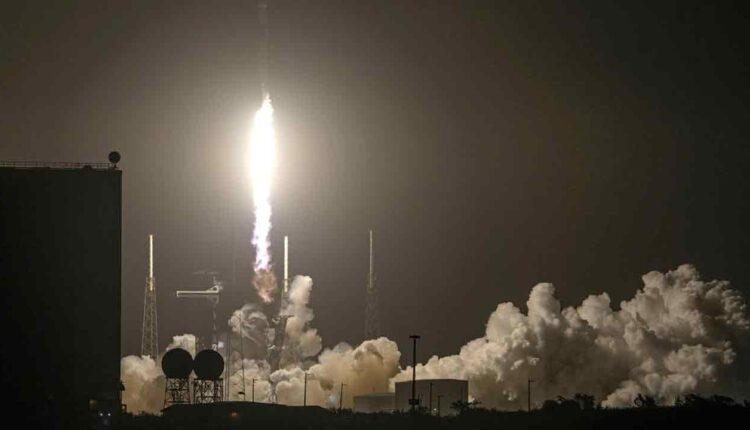New NASA Satellite To Study Ocean And Atmosphere Lifts Off On SpaceX Rocket
Washington: A new NASA climate mission to study ocean, and atmosphere has successfully launched into orbit on Thursday aboard a SpaceX Falcon 9 rocket. Known as PACE, short for, the Plankton, Aerosol, Climate, ocean Ecosystem satellite mission blasted off at 1:33 a.m. EST from Space Launch Complex 40 at Cape Canaveral Space Force Station in Florida.
Click Here To Join Us On WhatsApp
NASA confirmed signal acquisition from the satellite about five minutes after launch, and the spacecraft is performing as expected.
“Congratulations to the PACE team on a successful launch. With this new addition to NASA’s fleet of Earth-observing satellites, PACE will help us learn, like never before, how particles in our atmosphere and our oceans can identify key factors impacting global warming,” said NASA Administrator Bill Nelson, in a statement.
Click Here To Join Us On WhatsApp
“Observations and scientific research from PACE will profoundly advance our knowledge of the ocean’s role in the climate cycle,” added Karen St. Germain, director of, the Earth Science Division, Science Mission Directorate, at NASA Headquarters in Washington.
The PACE mission will study the impact of tiny, often invisible things: microscopic life in water and microscopic particles in the air.
Click Here To Join Us On WhatsApp
The satellite’s hyperspectral ocean color instrument will allow researchers to measure oceans and other waterbodies across a spectrum of ultraviolet, visible, and near-infrared light.
This will enable scientists to track the distribution of phytoplankton and — for the first time from space — identify which communities of these organisms are present on daily, global scales.
Next Story :
Now you can get the latest stories from Indtoday on Telegram every day. Click the link to subscribe. Click to follow Indtoday’s Facebook page, Twitter and Instagram. For all the latest Hyderabad News updates





